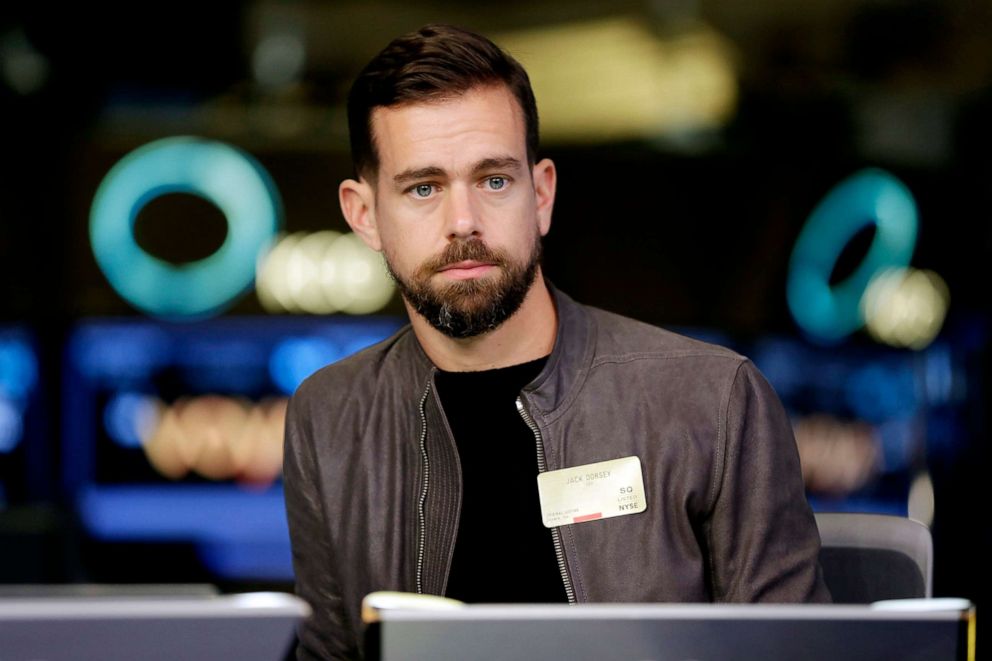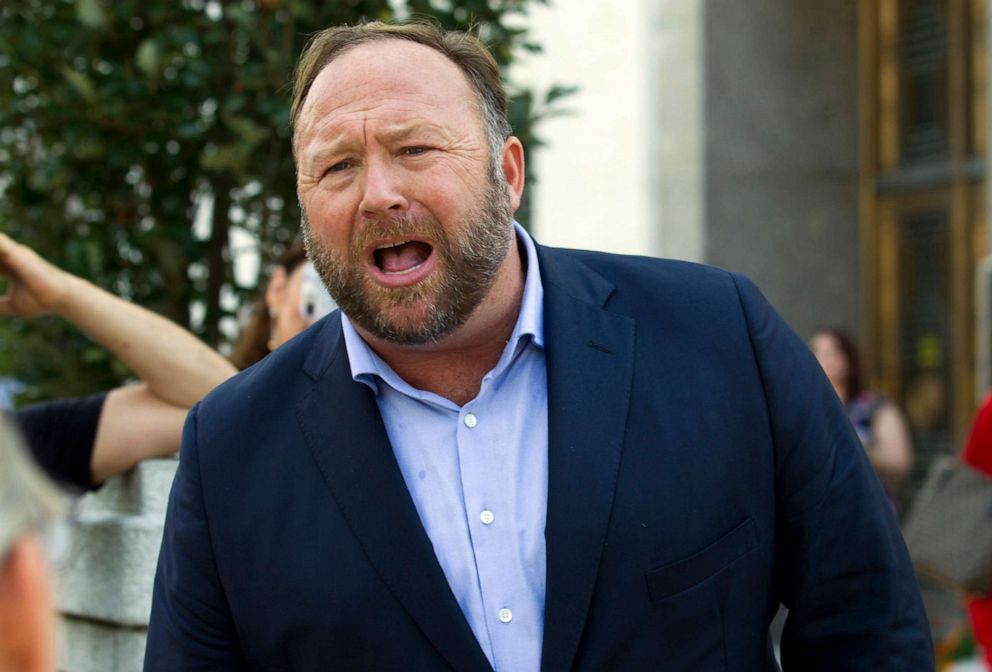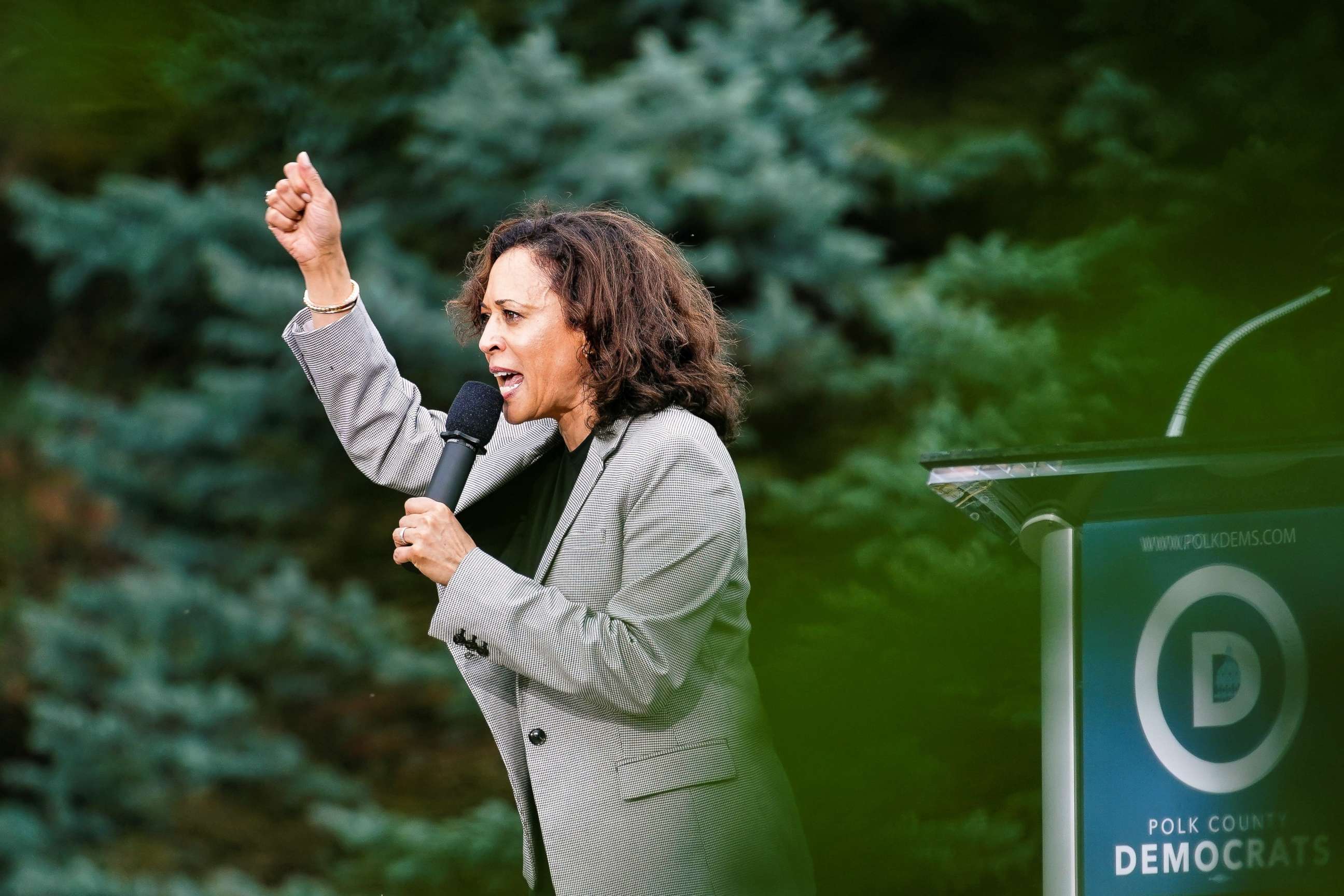2020 candidate Sen. Kamala Harris calls on Twitter to suspend President Trump's account
"We need a civil society, not a civil war," she says of his tweets.
Sen. Kamala Harris, D-Calif., penned a letter to Twitter CEO Jack Dorsey, urging him to suspend President Donald Trump’s account for a series of tweets she says violate the social media site's user agreement.
The presidential candidate makes her case using at least six tweets she alleges are intended to incite violence, intimidate the whistleblower and those who may have relayed information to them, and target House Intelligence Committee Chairman Adam Schiff.
One of the tweets she included was a retweet in which a pastor’s predictions about the ongoing impeachment inquiry against the president were quoted, stating, "If the Democrats are successful in removing the President from office (which they will never be), it will cause a Civil War like fracture in this Nation from which our Country will never heal."
House Speaker Nancy Pelosi announced the launch of an impeachment inquiry against the president on Sept. 24 after a whistleblower filed a complaint citing national security concerns regarding a phone call between President Trump and Ukrainian President Volodymyr Zelenskiy. A summary transcript of the call, released by the White House, has corroborated information found in the complaint.

Harris calls the tweets "blatant threats" and says, "We need a civil society, not a civil war. ... These tweets represent a clear intent to baselessly discredit the whistleblower and officials in our government who are following the proper channels to report allegations of presidential impropriety, all while making blatant threats that put people at risk and our democracy in danger."
She cited that InfoWars host Alex Jones was permanently banned from Twitter last year for spreading disinformation and inciting violence, and added that multiple users were suspended for hateful messages adding ,"No user, regardless of their job, wealth, or stature should be exempt from abiding by Twitter's user agreement, not even the President of the United States."

Twitter has previously defended its refusal to remove accounts like Trump's, saying Twitter exists "to serve and help advance the global, public conversation." The social media site made the comments in a blog post from January 2018, titled "World Leaders on Twitter," which defended keeping controversial politicians on the service, though it did not specifically mention Trump.
"Blocking a world leader from Twitter or removing their controversial Tweets would hide important information people should be able to see and debate," Twitter explained. "It would also not silence that leader, but it would certainly hamper necessary discussion around their words and actions."
Trump’s reelection campaign slammed Harris' efforts to get him suspended from Twitter, calling it a "coup attempt."
"Democrats are perpetrating another hoax on Americans with their impeachment farce, so it’s no wonder they want to block any opposing opinions from being heard. Democrats can only succeed if their coup attempt goes unchallenged," Trump campaign communications director Tim Murtaugh told ABC News.
Within a few hours, multiple presidential candidate showed disapproval for Harris' idea.

Hawaii Rep. Tulsi Gabbard told reporters on Tuesday, "No, I think freedom of speech is something that is an important, foundational, right in our democracy. I think the things that are coming from Donald Trump are things that are inciting a lot of divisiveness in our country, though, and this is one of the many reasons why I believe it's important that voters vote to defeat Donald Trump.
"On a serious note, though, we can't, we can't just cancel or shut down or silence those who we disagree with, or who hold different views, or who say things even that we strongly disagree with or abhor," she added.
Presidential candidate Elizabeth Warren was also asked if Trump should be banned from Twitter. She appeared to scoff at the question and delivered a simple one-word answer: "no."
ABC News' Beatrice Peterson contributed to this report.




